This list consists of a few (of so many!) pop culture–and not-so-pop-culture, but notable!– references to W.B. Yeats. I began by merging together some existing lists I found online, and when verifying those references or searching for related images, videos, and links I would often stumble upon other Yeats references. This list is by no means complete, but is a decent start at chronicling the seemingly endless references to William Butler Yeats and his poetry.
Electric Sheep Slouching Towards Bethlehem: Speculative Fiction in a Post Modern World (2014)
X-Men: Legacy #23 – “Slouching Towards Bethlehem” released by Marvel (March 2014)
“When You Are Old” Manga by julian peters comics (2012)
Peters has several adaptations of classic poems including Yeats’s “When You are Old.”
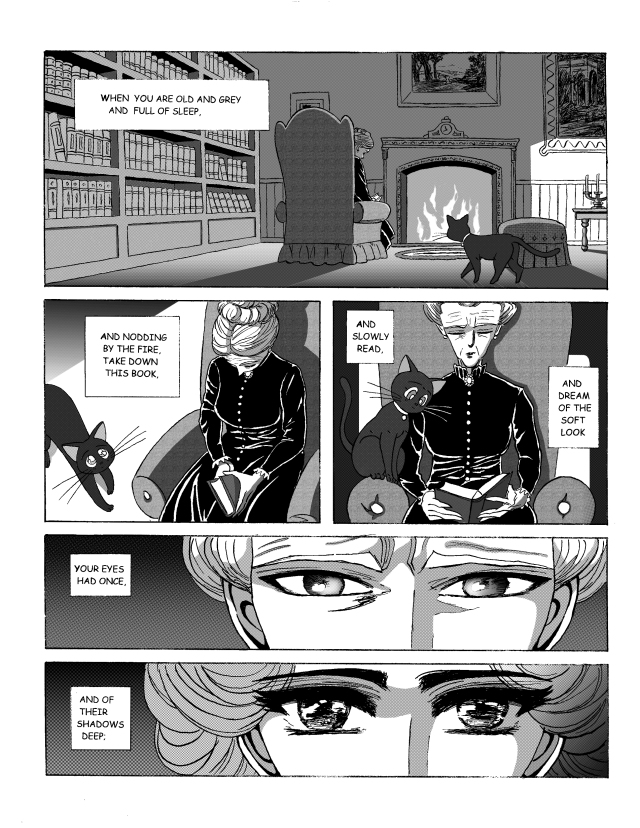
If you click on the link to see the full comic you’ll see that Peters has depicted Yeats himself as Love (the external Yeatsian “being” that has fled and “hid his face amid a crowd of stars.”) Contrast this to Yeats’s notion that emotions, like love, are external beings (a sort of “demon”) that could come and go as it pleased. Peters’s adaptation suggests perhaps there is more will involved than Yeats believed.
“The euro crisis: slouching towards Bethlehem” via The Guardian (2011)
Kevin Smith’s Batman: The Widening Gyre, DC Comics (August 2009 through July 2010)
**Spoiler alert for those who care…**
Batman: The Widening Gyre is a limited six-issue comic book series written by Kevin Smith and illustrated by Walt Flanagan. The series is a continuation of Smith’s 3-issue limited series Batman: Cacophony, the first of Smith’s Onomatopoeia trilogy. Batman Bellicosity, due in 2014 (?) will conclude the trilogy.
Issue #1 (pictured above) begins in a Jewish temple in Gotham City. Baron Blitzkrieg has teamed up with the Atomic Skull to attempt to destroy Torah Scrolls dating back to 1878 that had been smuggled out of Berlin shortly after Kristallnacht. After Batman, Robin, and Nightwing defeat Blitzkrieg and Atomic Skull, Batman heads off to Arkham Asylum to discover it completely overgrown with vegetation. Poison Ivy has turned Arkham into a fortress to protect herself from the anti-hero, Etrigan the Demon. Batman and Etrigan battle and just as it looks like Etrigan is about to strike the final blow another masked figure appears clad in black with a silver cape, donning a demon-like mask resembling a goat head and saves Batman.
So, what does this all have to do with Yeats?
Obviously The Widening Gyre is a reference to Yeats’s poem “The Second Coming.” The cover of issue #1 depicts a chaotic arrangement of satanic symbols, perhaps referencing the “mere anarchy” about to be “loosed upon [Gotham City]” and the coming of the rough beast.
While the beginning of the first issue seemingly has little to do with one of the main plots of the series–Batman’s encounters with the mysterious new vigilante who Batman eventually begins to consider as his possible replacement–it is interesting that the series should open in a Temple with Baron Blitzkrieg attempting to destroy the Scrolls. “The Second Coming” was published shortly after the end of WWI and with the aftermath of the war fresh in Yeats’s memory, he produced an apocalyptic poem reminiscent of the violence that dominated the world at this time. It seems appropriate then for Smith to begin his series with the villain Baron Blitzkrieg and his Neo-Nazi ring. Just as Germany seemed to be ushering in a new antithetical era with the violence of WWI, Baron Blitzkrieg sets up what will perhaps be Gotham City’s antithetical era–complete with a new hero.
Besides Baron Blitzkrieg and the Atomic Skull, Batman confronts “A gallery of [his] failures” in Arkham Asylum: The Mad Hatter, Tweedledum, The Riddler, Two-Face, and The Joker locked away in their cells which are being overgrown with plant life thanks to Poison Ivy. It is in these frames where “The ceremony of innocence is drowned”; where the people of Gotham see victories, “Batman’s Trophy Case”, Batman himself sees “a pageant of [his] shortcomings.” The reader is given the feeling that, surely, this center cannot hold…
This, however, is only the beginning of the series. Issue #1 ends with a mysterious masked figure who comes to Batman’s rescue and later identifies himself as “Baphomet.”
Baphomet appears again in part two: “The Falconer” when Batman has to choose between capturing a villain or saving a child. Batman, being as predictable as he is, obviously opts to save the child and fears he has let the villain escape. To his surprise, however, Baphomet has already captured the villain and turned him over to the cops while Batman was saving the little girl.
It’s unclear who, in this issue, “The Falconer” is supposed to be…Batman, I suppose? And is Baphomet now supposed to be the falcon that cannot hear? At the end Batman is knocked out by Cornelius Stirk and is left unconscious until the third issue, “Things Fall Apart.” It’s also possible that at this point Kevin Smith is just picking random lines from the poem to title each part of the series. I tried searching for interviews with Kevin about why he chose a Yeats poem to refer to in this series, but with no luck.
*Edit* Smith actually is just going line by line in the poem as he titles each issue:
#1: “Turning and Turning”
#2: “The Falconer”
#3: “Things Fall Apart”
#4: “The Centre Cannot Hold”
#5: “Mere Anarchy”
#6: “The Blood-Dimmed Tide is Loosed”
Given the events in each part it doesn’t seem that Kevin had “The Second Coming” in mind the entire time he was writing the series–except for the fact that Baphomet himself may turn out to be the “rough beast, its hour come round at last…” Besides the ending, which I refuse to give away because it is THAT good, “The Widening Gyre” shifts away from the poem as Baphomet continues to pique Batman’s interest and Batman’s relationship with Silver St. Cloud (a former love interest) develops. I will say that the ending of “The Widening Gyre” lines up again with the poem in that it may prove to be apocalyptic, both to Gotham City and to Batman himself. Unfortunately, Kevin Smith answers to no one, even DC, when it comes to deadlines and we may have to wait until 2025 for this Second Coming.
Vice President Biden to the European Parliament, “Easter Sunday, 1916” (2010)
If you are really that interested in hearing Biden quote Yeats you can hear him read a line from “Easter Sunday, 1916” about 48 seconds into the clip. I feel like he doesn’t understand the context of the poem…at all.
https://www.youtube.com/watch?v=LZ7NHVm3BC4&feature=youtu.be
Things Fall Apart & a Terrible Beauty is Born, Ignite Baltimore 6 – Andrew Hazlett (2010)
Star Trek: Mere Anarchy series (2009)
Star Trek: Mere Anarchy, which originally began as a series of e-books, is a six book epic covering thirty years of Star Trek history. Each novella was written by a different author and is now available as a single-volume, trade paperback. The titles of each individual novella are also taken from “The Second Coming.”
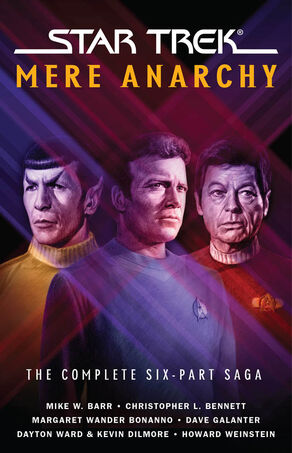
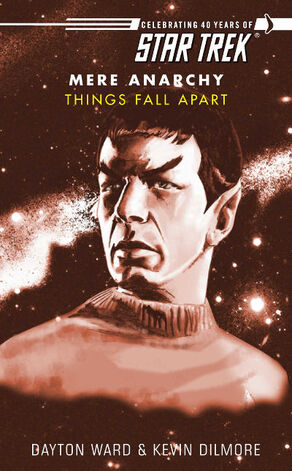
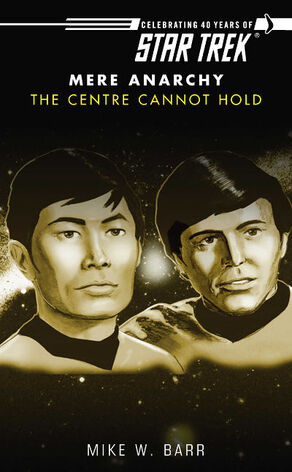
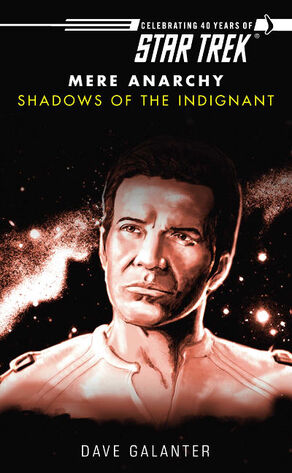



“Slouching Towards Bethlehem” by Robert James (2008)
The title to the album references “The Second Coming”
Bright Eyes “Four Winds” (2007)
Your class, your caste, your country, sect, your name or your tribe
There’s people always dying trying to keep them alive
There’s bodies decomposing in containers tonight
In an abandoned building where
Squatters made a mural of a Mexican girl
With fifteen cans of spray paint and a chemical swirl
She’s standing in the ashes at the end of the world
Four winds blowing through her hair
But when great Satan’s gone… the Whore of Babylon…
She just can’t sustain the pressure where it’s placed
She caves
The Bible’s blind, the Torah’s deaf, the Qur’an’s mute
If you burned them all together you’d get close to the truth still
They’re pouring over Sanskrit on the Ivy League moons
While shadows lengthen in the sun
Cast all the school and meditation built to soften the times
And hold us at the center while the spiral unwinds
It’s knocking over fences crossing property lines
Four Winds, cry until it comes
And it’s the Sum of Man slouching towards Bethlehem
A heart just can’t contain all of that empty space
It breaks. It breaks. It breaks.
Well I went back by rented Cadillac and company jet
Like a newly orphaned refugee retracing my steps
All the way to Cassadaga to commune with the dead
They said, “You’d better look alive”
And I was off to old Dakota where a genocide sleeps
In the Black Hills, the Badlands, the calloused East
I buried my ballast. I made my peace.
Heard Four Winds, leveling the pines
But when great Satan’s gone… the Whore of Babylon…
She just can’t remain with all that outer space
She breaks. She breaks. She caves. She caves.
Elyn Saks’s The Center Cannot Hold: My Journey Through Madness (2007)
Must Love Dogs (2005)
Christopher Plummer reads “Brown Penny”
Cormac McCarthy’s No Country for Old Men (2005)
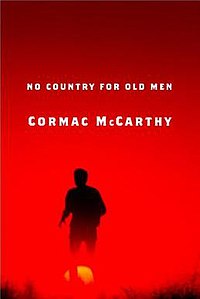
The title is from Yeats’s “Sailing to Byzantium”
The Hold Steady – ‘Chicago Seemed Tired Last Night’ (2005)
http://youtu.be/yhLdjYdQ7jk
The Hold Steady references Yeats himself twice in the song. Lyrics and some explanatory notes can be read here.
Bill Clinton’s My Life: The Presidential Years (2005)
From the book:
Bono was a big supporter of the peace process, and for my efforts he gave me a gift he knew I’d appreciate: a book of William Butler Yeats’s plays inscribed by the author and by Bono, who wrote, irreverently, “Bill, Hillary, Chelsea–This guy wrote a few good lyrics–Bono and Ali.” The Irish aren’t known for understatement, but Bono pulled it off. (p. 293)
“The Sorrow of Love”Sylvia, 2003
Watch Ted Hughes (Daniel Craig) read “The Sorrow of Love” (around 3:50)
Kurt Wimmer’s Equilibrium (2002)
Partridge (Sean Bean) reads from “He wishes for the Cloths of Heaven” and attempts to shield himself from a gun shot with a volume of Yeats’s work.
https://www.youtube.com/watch?v=aMw8rAghRr0
Angel: Season 4, Episode 4 “Slouching Toward Bethlehem” (2002)
You can view details about the episode here.
Steven Spielberg’s Artificial Intelligence: AI (2001)
Robin Williams, as the voice of a computer named “Mr. Know,” whispers a few lines of Yeats’s “The Stolen Child” to Haley Joel Osment: “Come away, O human child! / To the waters and the wild / With a faery, hand in hand, / For the world’s more full of weeping than you can understand.”
Bono talks to Erik Philbrook of Playback Magazine (2001)
From the interview:
I remember as a child, growing up in Ireland. We were taught the poetry of William Butler Yeats. I must have been ten years old. The teacher said, “and then Yeats went through his dry period. He had a writing block and he couldn’t write about anything.” I remember putting up my hand, and saying “Well, why didn’t he write about that?” And the teacher just looked at me and said, “Oh, be quiet.” But that is exactly the answer to the writing block. You write about your own emptiness, and we’ve done that for years now.
Joni Mitchell’s “Slouching Towards Bethlehem” (1991)
Another reference to “The Second Coming” is Joni Mitchell’s song “Slouching Towards Bethlehem” off her 1991 album Night Ride Home.
Anthony Hopkins reads “He Wishes for the Cloths of Heaven” to himself in the film 84 Charing Cross Road (1987)
Oliver Stone’s Wall Street (1987)
I couldn’t find a clip of the actual line, but apparently somewhere in this film Michael Douglas (as Wall Street big shot Gordon Gekko) says, “So the falcon’s heard the falconer, huh?”
Here’s the trailer:
The Smiths’ “Cemetry Gates” (1986)
Yeats (and Keats!) earns a shoutout from Morrissey in the song, but he chooses Oscar Wilde…
The Smiths-Cemetery Gates – YouTube.
A dreaded sunny day
So I meet you at the cemetry gates
Keats and Yeats are on your side
A dreaded sunny day
So I meet you at the cemetry gates
Keats and Yeats are on your side
While Wilde is on mine
So we go inside and we gravely read the stones
All those people, all those lives
Where are they now?
With loves, and hates
And passions just like mine
They were born
And then they lived
And then they died
It seems so unfair
I want to cry
You say : “‘Ere thrice the sun done salutation to the dawn”
And you claim these words as your own
But I’ve read well, and I’ve heard them said
A hundred times (maybe less, maybe more)
If you must write prose/poems
The words you use should be your own
Don’t plagiarise or take “on loan”
‘Cause there’s always someone, somewhere
With a big nose, who knows
And who trips you up and laughs
When you fall
Who’ll trip you up and laugh
When you fall
You say : “‘Ere long done do does did”
Words which could only be your own
And then produce the text
From whence was ripped
(Some dizzy whore, 1804)
A dreaded sunny day
So let’s go where we’re happy
And I meet you at the cemetry gates
Oh, Keats and Yeats are on your side
A dreaded sunny day
So let’s go where we’re wanted
And I meet you at the cemetry gates
Keats and Yeats are on your side
But you lose
‘Cause weird lover Wilde is on mine
Sure!
Van Morrison’s “Crazy Jane On God” (1984)
The Defenders #97 – “Slouching Toward Bethlehem” released by Marvel (July 1, 1981)

Joan Didion’s Slouching Towards Bethlehem (1968)
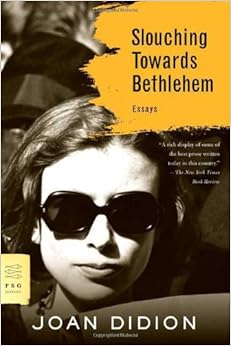
Slouching Towards Bethlehem is a collection of essays and mainly describes Didion’s experiences in California during the 1960s.
Didion prefaces the collection by calling attention to the relevance of “The Second Coming”:
… for several years now certain lines from the Yeats poem which appears two pages back have reverberated in my inner ear as if they were surgically implanted there. The widening gyre, the falcon which does not hear the falconer, the gaze blank and pitiless as the sun; those have been my points of reference, the only images against which much of what I was seeing and hearing and thinking seemed to make any pattern.
A Terrible Beauty, film—retitled The Night Fighters for its U.S. release (1960)
A Terrible Beauty is based on Arthur Roth’s 1958 novel of the same name.
Chinua Achebe’s Things Fall Apart (1958)
When asked about his relationship to Yeats in an interview with The Paris Review, Achebe responds:
I wouldn’t make too much of that. I was showing off more than anything else. As I told you, I took a general degree, with English as part of it, and you had to show some evidence of that. But I liked Yeats! That wild Irishman. I really loved his love of language, his flow. His chaotic ideas seemed to me just the right thing for a poet. Passion! He was always on the right side. He may be wrongheaded, but his heart was always on the right side. He wrote beautiful poetry. It had the same kind of magic about it that I mentioned the wizard had for me. I used to make up lines with anything that came into my head, anything that sounded interesting. So Yeats was that kind of person for me. It was only later I discovered his theory of circles or cycles of civilization. I wasn’t thinking of that at all when it came time to find a title. That phrase “things fall apart” seemed to me just right and appropriate.
The full interview can be read here.
Though Achebe admits he didn’t have a complete grasp on Yeats while writing Things Fall Apart the two, both being a colonized people, have similar views on language in regards to colonization. In a speech entitled, “The African Writer and the English Language” (1975) Achebe said:
Is it right that a man should abandon his mother tongue for someone else’s? It looks like a dreadful betrayal and produces a guilty feeling. But for me there is no other choice. I have been given the language and I intend to use it. (Thiong’o, p. 263)
Yeats too had been given the language and, like most in Ireland, did not speak Irish and thus had to write in English:
We had no Gaelic, but paid great honour to the Irish poets who wrote in English, and quoted them in our speeches. I could have told you at that time the dates of the birth and death, and quoted the chief poems, of men whose names you have not heard, and perhaps of some whose names I have forgotten. I knew in my heart that the most of them wrote badly, and yet such romance clung about them, such a desire for Irish poetry was in all our minds, that I kept on saying, not only to others but to myself, that most of them wrote well, or all but well. (“Ideas of Good and Evil”)
Ray Bradbury’s The Golden Apples of the Sun (1953)

Bradbury takes the title of his anthology of 22 short stories from a line in Yeats’s poem, “The Song of Wandering Aengus.” The last three lines of the poem are also included in the beginning of the book.
Though I am old with wandering
Through hollow lands and hilly lands,
I will find out where she has gone
And kiss her lips and take her hands;
And walk among long dappled grass,
And pluck till time and times are done
The silver apples of the moon,
The golden apples of the sun.

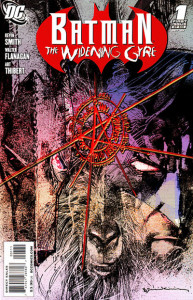


Awesome
thanks! 🙂
Damn, lots of work put into this. I really liked the Batman exposition, and the research you did in how an original artistic inspiration can flip between something as dark as that Batman comic appears to be and Conor Oberst’s light style. Very cool.
Thanks! I still have a lot of work to do (before tomorrow). The amount of references to Yeats is insane.
I have a lot to add to the Batman commentary; so far I’ve only commented on the first issue, but there are 5 more that I haven’t posted on yet.
And Conor Oberst is great! His style is light but his lyrics can be pretty dark/cynical sometimes so the references to “The Second Coming” are kind of perfect.